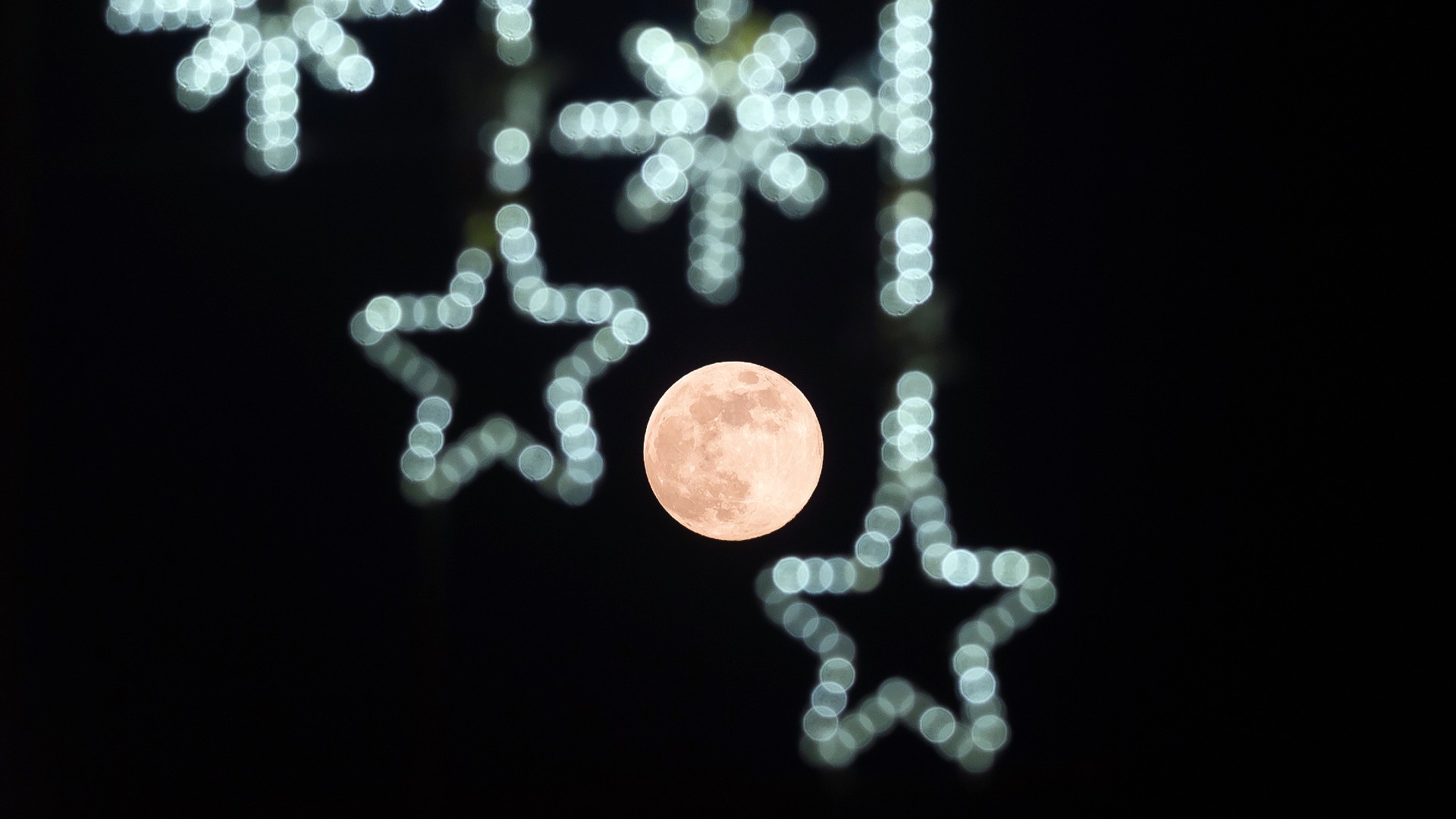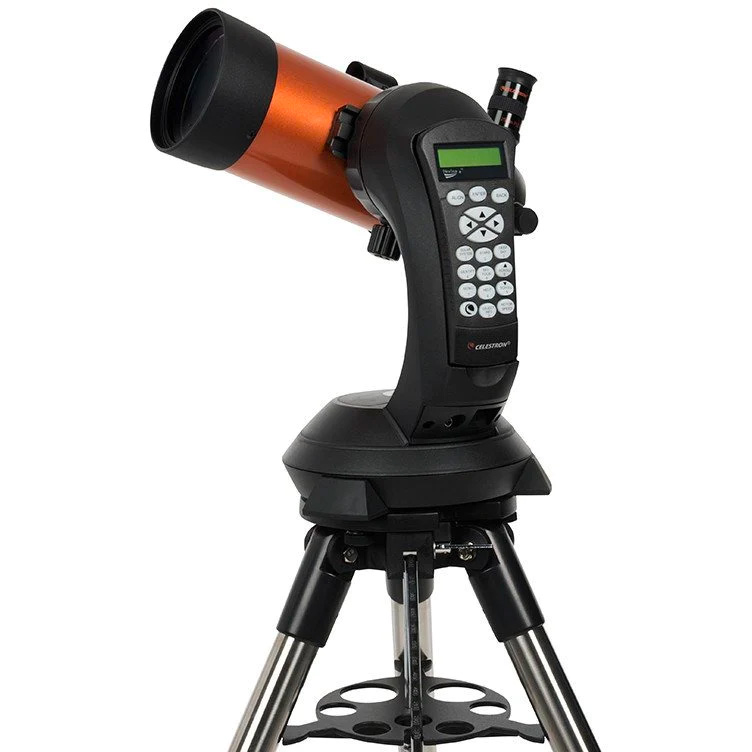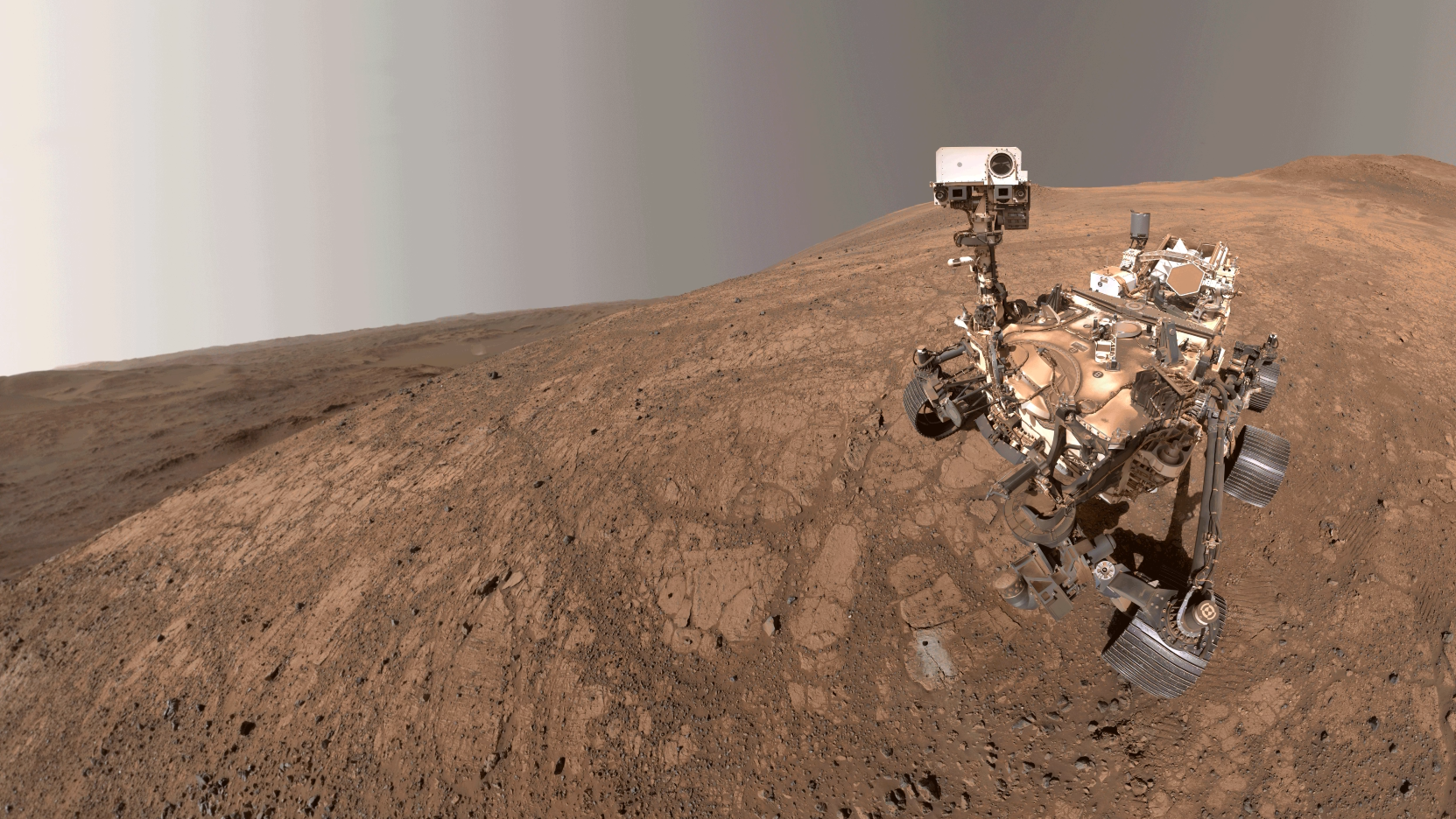December full moon shines bright this weekend: How to see the last full moon of 2024
December's full moon also coincides with the peak of the Geminid meteor shower, which should be most active on the night of Dec. 13.

The final full moon of 2024 is lighting up the skies this weekend to welcome in the holiday season.
December's full Cold Moon rose overnight on Saturday (Dec. 14) and remained in the sky all night until setting with the sunrise today (Dec. 15). It will still appear full to the casual observer for the rest of the weekend. The full moon rose in the Taurus constellation, just along the Bull's horns close to the neighboring Auriga constellation, the Charioteer. Close by will be a bright Jupiter.
The December full moon also coincides with the peak of the Geminid meteor shower, which was expected to be most active on the night of Dec. 13. The moon might make it difficult to see all but the brightest meteors, but skywatchers should be able to see a few "shooting stars" with a bit of patience and some warm clothing.

Want to see the features of the moon up close? The Celestron NexStar 4SE is ideal for beginners wanting quality, reliable and quick views of celestial objects. For a more in-depth look at our Celestron NexStar 4SE review.
The exact moment of the December full moon occurred at 4:02 a.m. EST (0902 GMT) on Sunday morning, Dec. 15. But even as early as Friday night (Dec. 13), the moon will be 97.9% illuminated, according to Timeanddate, making it appear fairly full to most observers. For two days after the full moon, the moon will remain over 90% illuminated, although the moon will rise later and later each day.
Aside from Jupiter, December's full moon will also share the sky with a bright Venus, shining in the southwest as an "evening star" before setting a few hours after sunset. Saturn will also be prominent, residing high in the sky in the Aquarius constellation for several hours after the moon rises. Mars will rise a few hours after the moon, just above the twins of Gemini.
December's Cold Moon gets its name from the fact that nights are generally long and cold in the year's final month. Other names for the December full moon include the Oak Moon from some Celtic traditions, the Snow Moon in Cherokee traditions, or the Long Night Moon, a name from the Mohican people.
If you want to try taking your own photos of the December full moon, check out our guide on how to photograph the moon. And if you don't have everything you need for shooting the night sky, check out our best cameras for astrophotography and best lenses for astrophotography.
Get the Space.com Newsletter
Breaking space news, the latest updates on rocket launches, skywatching events and more!
Editor's note: If you snap a great photo of December's Full Cold Moon you'd like to share with Space.com and our news partners for a story or image gallery, send images and comments to spacephotos@space.com.
Join our Space Forums to keep talking space on the latest missions, night sky and more! And if you have a news tip, correction or comment, let us know at: community@space.com.

Brett is curious about emerging aerospace technologies, alternative launch concepts, military space developments and uncrewed aircraft systems. Brett's work has appeared on Scientific American, The War Zone, Popular Science, the History Channel, Science Discovery and more. Brett has English degrees from Clemson University and the University of North Carolina at Charlotte. In his free time, Brett enjoys skywatching throughout the dark skies of the Appalachian mountains.
